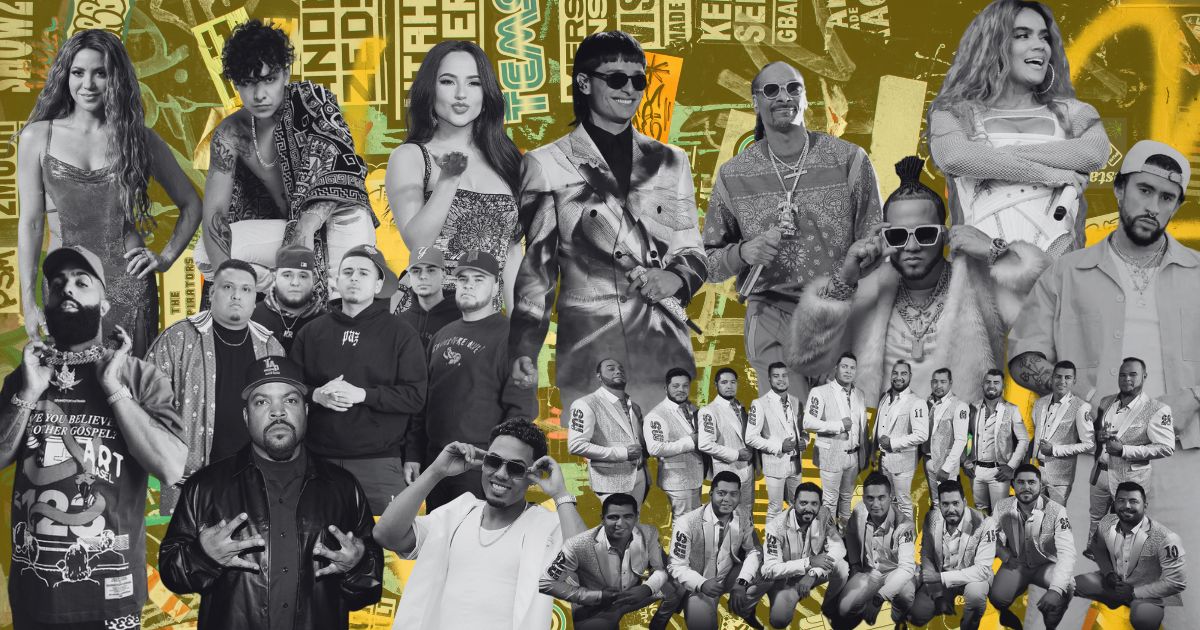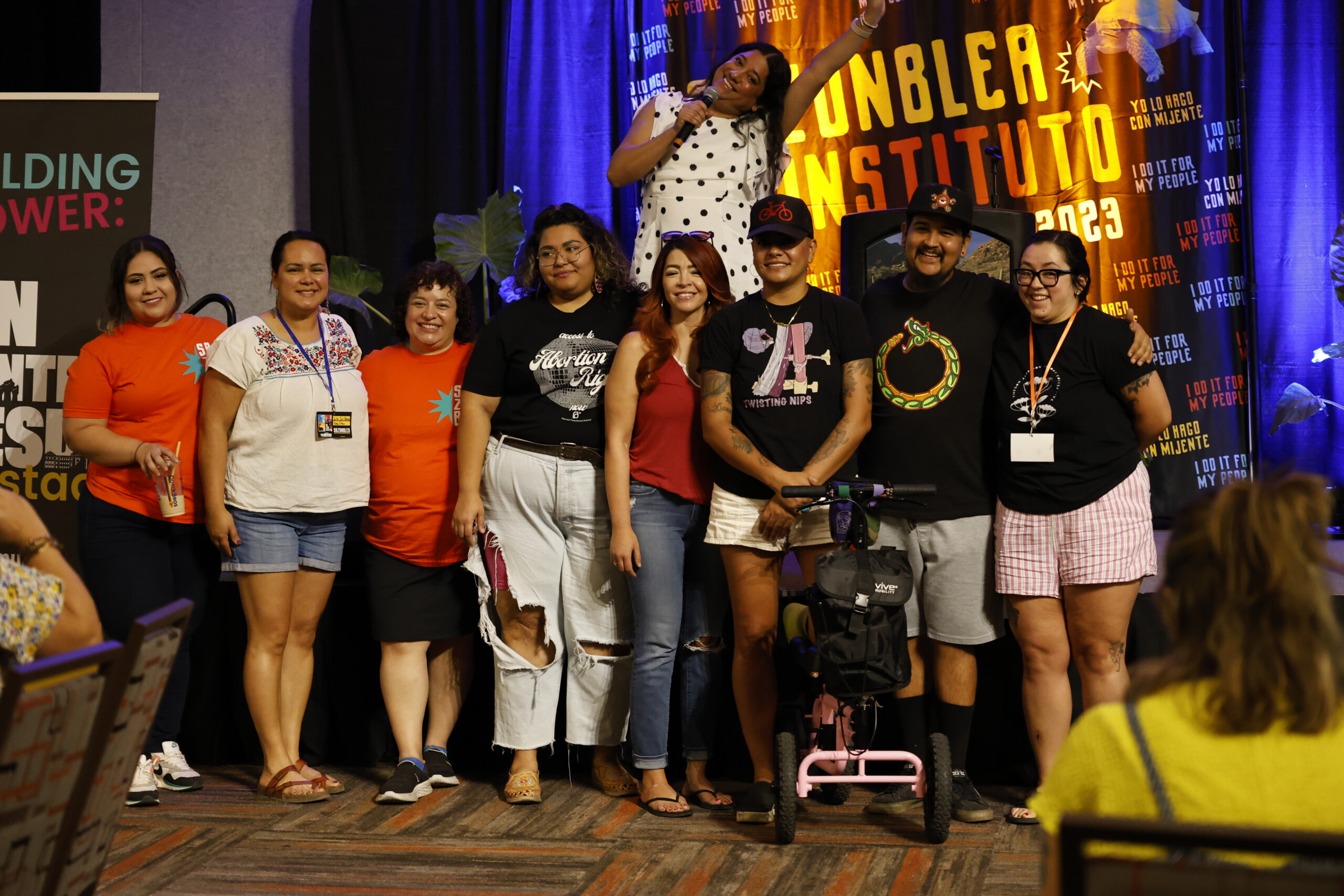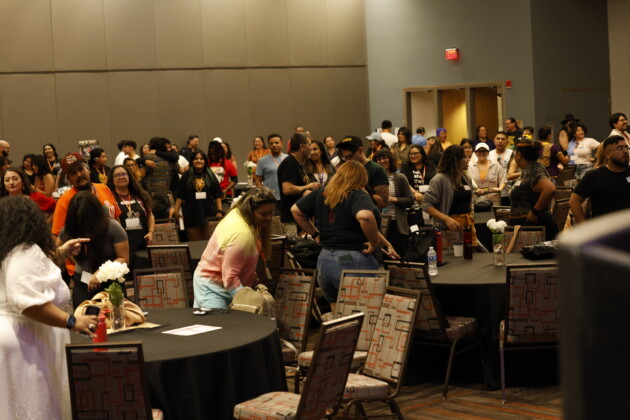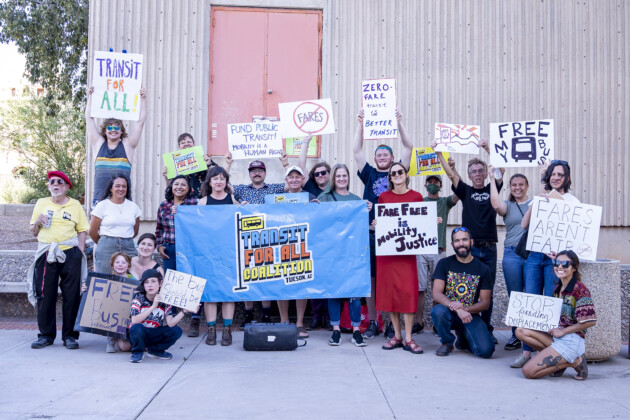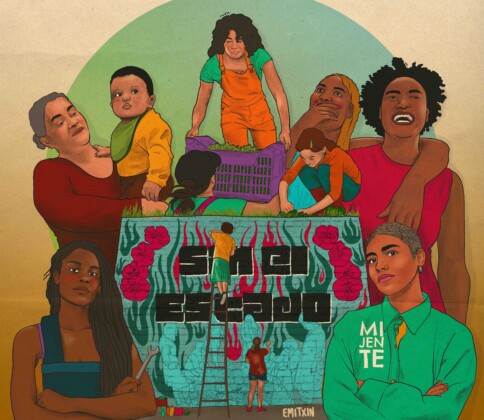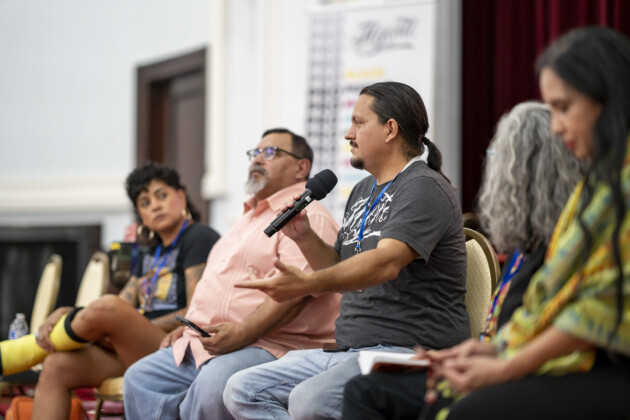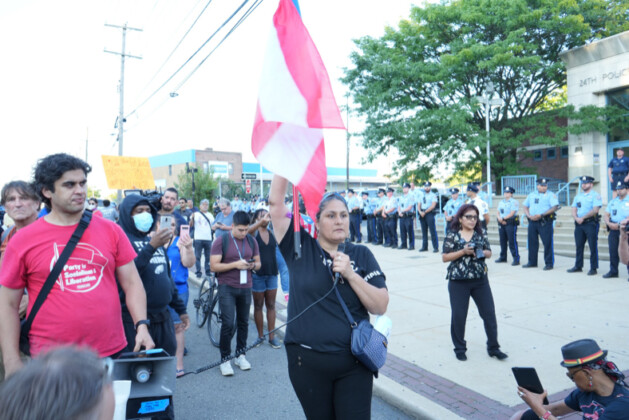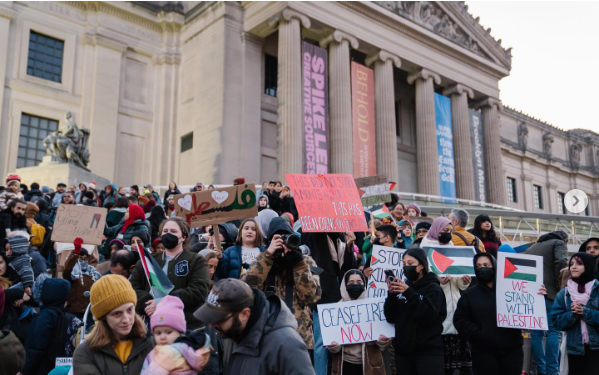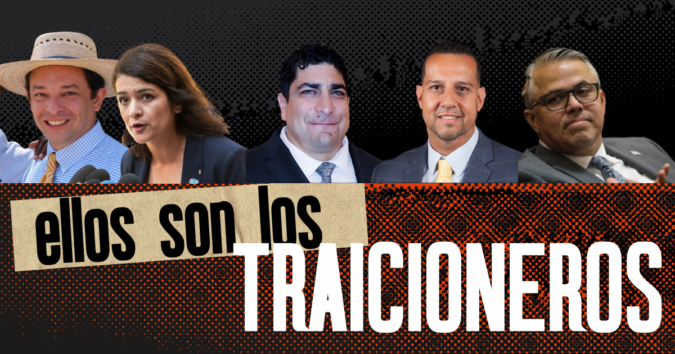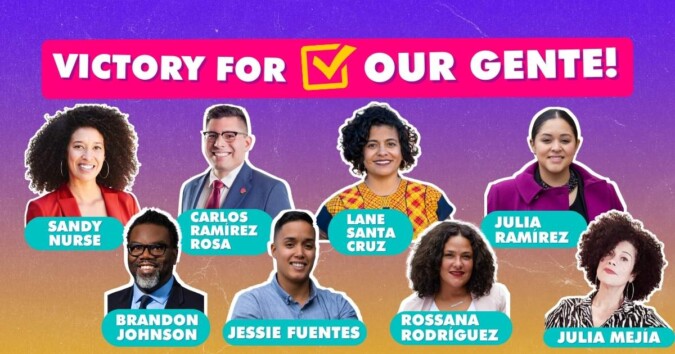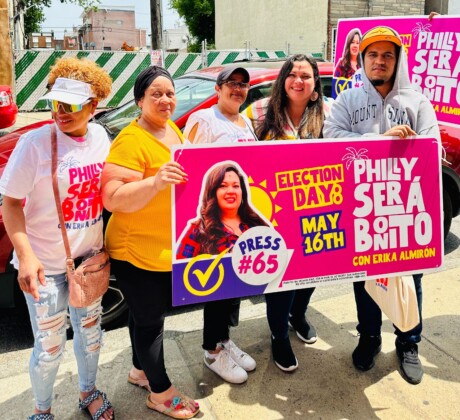by Osmani R. Alcaraz-Ochoa
Months ago, I created a Spotify playlist that randomly has Reggaeton, Dembow, Rap (en Español) and Regional Mexican music all mixed together. I told myself I would later separate them out by genre since it didn’t make sense to have all those different genres in one playlist. But I never got to creating the separate playlists — it was too hard to do with the growing number of songs that are cross-genre collaborations. I didn’t know where to categorize them anymore!
The only thing they have in common is that they are in Spanish, and even that has clear differences as slang varies by region and country. It would be the equivalent of having English-language Hip-Hop merge with Country music. In other words, it is not very expected to have very different sounding types of musical genres to come together in one song, much less become a globally embraced trend.
Cross-Genre Collabs: A Short History
So, how did this happen?
These collaborations seem random. But there is a growing multi-racial, multicultural, multi-genre, multi-lingual musical movement that is becoming more common and is also getting defiant, political, and even on occasion radical, and we are not talking about it enough.
This has been years in the making and it has taken off in the last few months. The first time this merging of genres stood out to me was with the song “Que Maldición” by Banda MS and Snoop Dogg (and Becky G was on the remix). It was a hit that although it is a love song, it captures the southern California cultural co-existence between Mexican-American and African-American cultures. The song is Banda Rap perfection not heard since the Akwid rap duo of the early 2000s.

Important to note too is that before the cultural reset that “Que Maldición” represented, we had other cross-genre collaborations in years past, including:
- Tito “El Bambino” and Jenni Rivera (2009)
- Pipe Bueno and Maluma (2016)
- Bad Bunny and Natanel Cano (2019)
- Piso 21 and Christian Nodal (2019)
But these were usually one-offs, we weren’t saturated with these collabs on an ongoing basis. Now, the music industry — and the listener — has shifted.
Audience Trends: Mexican Regional y Reggaeton
The Latin music listening audience is pretty diverse throughout Latin American, the Caribbean and the diaspora in the US. And when looking at the data on listener trends, we get a sense of how Mexican Regional music is growing across the board. Just on Spotify alone, the Mexican music genre has hit 5.6 billion streams worldwide, with data showing it grew by 56% from 2021 to 2022.
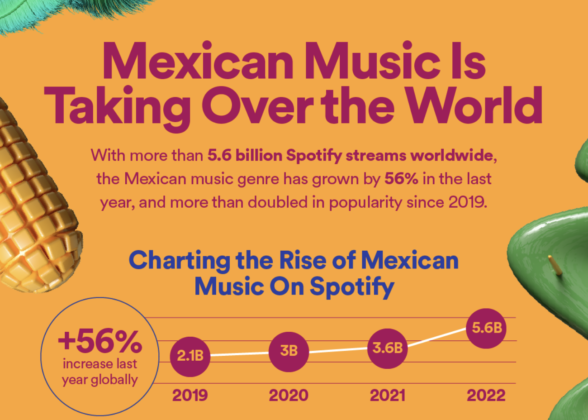
This growing popularity has taken place alongside the reign of Reggaeton, which has dominated the market since Daddy Yankee’s la “Gasolina” song took us by storm in 2004. For at least the last decade, Reggaeton has risen to become a commercial and global phenomenon and Mexican consumers have long focused their attention, money, and streaming power to Reggaeton. This shift comes alongside Mexican listeners having historically preferred Banda, Corridos, Cumbias Norteñas and other Regional Mexican Music, peaking with Selena and Jenni Rivera as global icons in this broad umbrella genre.
In the late 2010’s, Becky G became the first major Reggaeton act of Mexican ancestry and in many ways has served as a bridge between Reggaeton and Regional Mexican Music for a number of years. She recorded a duet with Joss Favela in 2018, released the song “Mayores” featuring Bad Bunny in 2019 which has a Mexicanized cumbia base in the beat, and she released a full-length Regional album in 2023 titled, “Esquinas.” “Esquinas” is a nostalgic and poignant album that was co-produced by Edgar Barrera of South Texas, a notable Mexican Regional, grammy-winning producer and songwriter behind some of the biggest acts and multi-genre Latin songs.

Further, it seems like Mexicans en masse have at one point picked Bad Bunny as their #1 artist over the last few years and they’ve stayed pretty committed to him (oh, and Karol G). In 2022, Bad Bunny filled the iconic Estadio Azteca in Mexico City—Latin America’s largest stadium–two nights in a row, with over a 90,000 seat capacity.
And now Peso Pluma has entered the chat.
A New Cross-Genre Formula
It is clear Peso Pluma (Hassan Emilio Kabande Laija), of Mexican and Lebanese ancestry, has studied Bad Bunny’s career and analyzed the listener numbers too. He is rooted in Mexican corridos tumbados–a sub genre credited to Natanael Cano and Rancho Humilde Records–but is also simultaneously a featured artist in multiple catchy reggaeton tracks. Peso Pluma has saturated the market across genres. This unprecedented formula that relies on pop versatility has allowed him to consolidate large numbers of Reggaeton, Rap, and Mexican Regional audiences under him as a multi-genre artist like no other artist has been able to do.

This formula has opened the floodgates to having Mexican Regional Music achieve a global mainstream position it had never seen before.
“Ella Baila Sola” by Eslabon Armado featuring Peso Pluma went viral on TikTok and became the first regional Mexican song in history to reach the top 10 of the US Billboard Hot 100, as well as the first to top the Billboard Global 200 and was chosen by Rollingstone as Song of the Year.
Another global hit was “Un x100to” by Grupo Frontera featuring Bad Bunny. We also had:
- “¿Cuáles Fronteras?“: Banda MS featuring Ice Cube (with an excellent anti-borders, racial solidarity anthem)
- “77“: Peso Pluma featuring Eladio Carrion (where Eladio, an Afro-Puerto Rican trap rapper, seamlessly raps over a corrido beat)
- “Mi Tío Snoop“: Alemán featuring Snoop Dogg (where Alemán cites Snoop Dogg as one of his biggest influences and the rap song and video pay homage to West Coast rap)
- “Pariente“: Fuerza Regida featuring Myke Towers (where the Afro-Puerto Rican rapper raps over a corrido beat as well),
- “QLONA“: Karol G featuring Peso Pluma (which remained in the US Billboard Top 100 for weeks),
- “PLEBADA” El Alfa featuring Peso Pluma (his first in crossover into the Dominican sound of Dembow).
As you can see, this has been a big year for collabs, even outside of Reggaeton and Mexican Regional. Most notable is the pop-oriented cross-genre collab of “EL JEFE” by Shakira and Fuerza Regida, is a political and social commentary condemning labor exploitation, xenophobia, and wealth inequality.

On top of all this, Mexican Regional music artists have gotten co-signs from the likes of Drake, Paris Hilton, Coi Leray, Cardi B, The Tonight Show with Jimmy Fallon, and Good Morning America. And now, there are rumors of possible collaborations between Peso Pluma with A$AP Rocky, Cardi B, and Travis Scott, among others, for his upcoming sophomore album.
Blending Musical and Cultural Borders
Something important to acknowledge about this musical moment or movement is the number of unprecedented collaborations and cultural co-existence vibrantly taking place, across musical genres, race, cultures, and language barriers. Collaborations between Brown, White and Mestizo Mexicans with Afro-Latino and African-American artists are touching on lyrics about love, street and working class life and on political and social justice-oriented issues. The Spanish-language rap song titled “Rap Contra el Racismo 3.0” is a multi-racial, pan-Latin American critique of white supremacy, capitalism, borders, and imperialism with rap lyricist titans from Colombia, Venezuela, Mexico, Cuba, and the US.
Additionally, the corrido tumbado subgenre is heavily influenced by hip-hop, as these Mexican-American youth (both artist and listeners) are largely bilingual, bicultural, and urban. Like Jesús Ortíz of Fuerza Regida once said in an IG post summarized: they are not our parent’s or grandparent’s generation of cowboy hat and boots wearing corrido singers of the past. They grew up listening to Chalino Sánchez, Valentin Elizalde and Drake and Snoop Dogg. It is precisely this hip-hop vibe and culture within a genre that sonically sounds very different from rap that has helped the genre expand outwards to the Reggaeton and Rap circles. As queer Chicana rapper Snow Tha Product raps in the song titled “Bilingüe”, she declares á la Gloria Anzaldúa that we exist within borders, that we are neither from here or there but we are also both from here and there.
We also can’t ignore the growing Reggeaton scene in Mexico. There are Mexican artists that strictly only do Reggaeton or R&B and don’t get into Regional Mexican music. Artists like Latin Mafia, El Bogueto, El Malilla, Bellakath, Dani Flow and others have had catchy, pure Reggaeton songs go viral on social media. This scene in Mexico is bubbling under, and has produced global momentum with “La Bebe (Remix)” by Yng Lvcas and Peso Pluma.

All in all, Bad Bunny has shown us that you no longer have to sing or rap in English for crossover, mainstream US success like his predecessors had to undergo. The road to the global success that Latin music today has achieved was paved by many: Celia Cruz, Gloria Estefan, Tito Puente, Carlos Santana, Linda Ronstadt, José Feliciano, Freddy Fender, Los Tigres del Norte, Vicente Fernández, Juan Gabriel, Selena, Marc Anthony, Ricky Martin, Shakira, Don Omar, Ivy Queen, and Daddy Yankee — just to name a few iconic musical figures that contributed greatly to chipping away the musical borders that are being crossed over today.
Only time will tell if this wave of Regional Mexican music, Reggaeton, Dembow and Rap coalitions will last or if it is a temporary trend. Will the impact be felt beyond the music industry and into the streets, barrios, neighborhoods, workplaces, and voting polls? Regardless, this musical moment or movement within and beyond Latin music is helping elevate and evolve Latin music to wherever it will go next, but now holding a palpable multicultural, coalitional politic and a bigger global audience than ever before.
Osmani R. Alcaraz-Ochoa is a writer, poet, and organizer living in San Antonio, Tejas.
